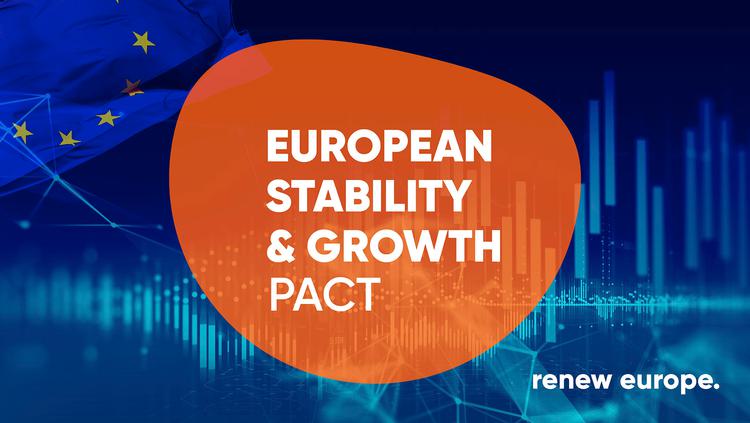
The way in which the EU's economic governance is articulated is crucial to maintain the balance between the bloc's growth and competitiveness and the markets confidence in the Union’s debt sustainability. In that regard, today´s plenary backing of the trilogue deal reached on the Economic Governance Review (EGR) is a good sign. The final compromise enables an updated economic governance framework following the exceptional suspension of the EU´s fiscal rules in 2020, which gave Member States greater budgetary flexibility to cope with the aftermath of the pandemic, as well as the war in Ukraine and the ongoing conflicts in the Middle East.
With the reactivation of the Stability and Growth Pact in 2024, Renew Europe’s negotiating team made sure that the new framework, which can be tailored to the different economic realities of the Member States, strikes an adequate balance between the need to ensure effective debt reduction and enough flexibility to promote the strategic investments and reforms the EU needs to be able to compete with key geopolitical players such as China, the US and India in an increasingly volatile world.
MEP Billy Kelleher (Fianna Fáil, Ireland), Renew Europe shadow rapporteur on EGR, stated:
"By reaching this agreement we prevent a return to the rigid framework of the past and can avoid plunging some of our Member States into austerity. The last few years have been tumultuous, tough on our citizens, and a burden on our economy. This framework helps Member States determine a tailored made plan to return to sustainable debt levels, whilst having the necessary flexibility to make investments for our future, as well as the necessary tools to address the climate-related challenges we face. Contrary to what some political groups say, this new framework does not prohibit any investments but does help channel public money into much-needed reforms and investments. Unfortunately the framework does not produce an unlimited money tree for the EU economy, but it does assist Member States in using the fruits of their labour in an effective manner"
MEP Stéphanie YON-COURTIN (L’Europe Ensemble, France), Renew Europe coordinator on Economic and Monetary Affairs Committee (ECON), declared:
"Europe will only be able to strengthen its sovereignty if it is credible in budgetary terms. Credible in the eyes of future generations, credible in the eyes of our partners and credible so that we can continue to invest in Europe in our common priorities. This reform sets out the conditions that will enable Member States to reduce their debt levels, without putting the brakes on the investment that is essential to meet the climate, digital and security challenges of the future.
Our political group is satisfied with the adopted legislation as it includes decisive measures that we have been advocating for months. Thus, the new framework will address the existing investment gaps in the EU by providing enough fiscal space for strategic public spending that will strengthen the EU Single Market and help to deliver the twin transitions. This will be combined with safeguards that would ensure there is effective and sustainable debt reduction without dampening growth.
Moreover, thanks to Renew Europe’s fruitful contribution, national ownership will come together with accountability by independent fiscal institutions, and the European Fiscal Board will be provided with an adequate legal framework for conducting its activities.
Lastly, beyond the oversight role played by the Commission and independent national authorities, our political group has succeeded in securing an improved economic governance with greater democratic scrutiny, in which the European Parliament plays a key role.